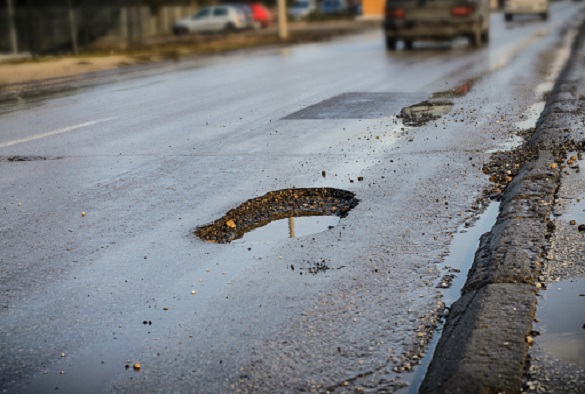
A University of Liverpool engineer is developing a radical new approach to tackle the pothole crisis which plagues many parts of the country.
Dr Paolo Paoletti, a Senior Lecturer in the School of Engineering, is developing a device that will significantly improve the way road defects, including pot holes and road cracks, are identified and subsequently repaired.
The new device will use techniques borrowed from production engineering and metrology to create 3D models of pothole that help assess the nature and extent of the defects so they can be repaired more quickly, to a higher standard and at less cost than current methods.
The number and severity of potholes is at crisis level in the UK. Over the last decade, 17.9 million potholes have been filled, at a cost estimated to exceed £1bn. Ageing roads, increasing number of users, and enhanced vulnerability under extreme climate scenarios all contribute to an increase in pothole occurrence.
Current methods to manage and repair potholes are time-consuming and labour intensive, and hence costly. In addition, poor on-site quality testing of repairs often means that future repair of the same site is required.
Dr Paoletti said: “This is an exciting project which will apply latest techniques in engineering to the ever increasing issue of potholes. Current approaches to repairing potholes are not sustainable and a step-change in the processes used for road maintenance is urgently needed
“This new device has the potential to change the way roads and their defects are managed, promoting a data-driven approach to management and improving efficiency.
We hope that this new device is a first step toward autonomous pothole repair platform which will ultimately make UK road network safer and more accessible.”
The project `Shape-Pot’ is one of a number of innovative research projects funded by the Department of Transport to spot and repair potholes and improve road journeys across the country.